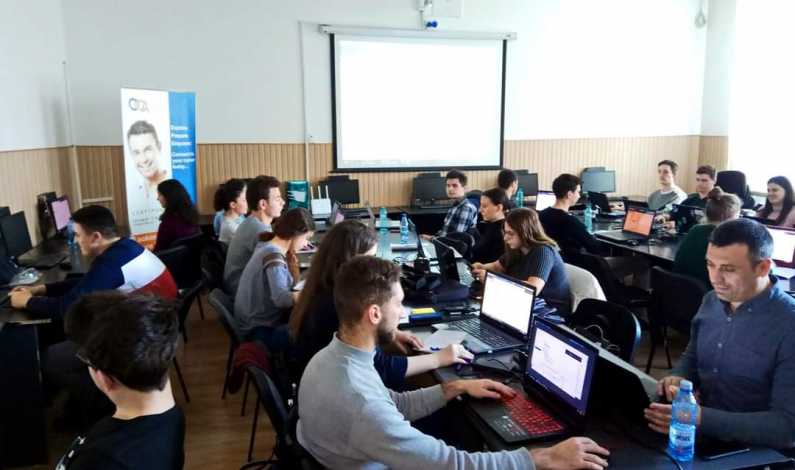The Robotic Process Automation (RPA) course initiated by the companies Aliant and Tailent, at the Faculty of Economics and Business Administration of the "Alexandru Ioan Cuza" University in Iasi, turns out to be a real incubator of software robots for the business environment. The robots, created by the 70 participating students, revealed the innovative perspectives of young people and are valuable starting bases for the initiation of start-ups in IT and RPA in particular.
Aliant, one of the leading integrators and providers of IT service management, has been involved for several years in training young generations of students in the field of technology through collaboration with the academic environment. In 2021, together with Tailent, the Romanian technology company known for democratizing access to Robotic Process Automation solutions, initiated the RPA course at the Faculty of Economics and Business Administration (FEAA) of the "Alexandru Ioan Cuza" University in Iași, in which students learned to use this technology and build software robots. The program, which ended in January 2022, was a real success, with approximately 70 undergraduate and master students participating. Its results, exceeding expectations, encourage the initiators to continue organizing the course in the following years and even initiate other complementary courses, such as an accelerator for start-up ideas.
Universities around the world still find themselves in the paradigm where there is a gap between what is taught in classes, what students actually learn and what skills are required in business and real life. More often than not, academia fails to keep up with what's happening in technology and business. For Romania, this is where Aliant intervened, which proposed to be the link between theory and practice.
Through the collaboration between Aliant and academia, students have the chance to put theoretical knowledge into practice. In the course, they don't just learn about RPA technology, they actually practice using the platform and developing functional software bots. It's the best way to develop a skill, to understand a technology, to see tangible results.
"The partnership with the University benefits all parties involved. For the university, the advantages are obvious. In a competitive market, where there is a struggle to attract students, the existence of such a course sends clear messages: the university is modern, uses avant-garde technology, understands the trends in tech and business, and at the same time, diminishes the discrepancy between academic and business. Students not only learn about RPA, but work and develop robots that can be used in real business. They acquire a competence that they can immediately apply in the labor market, thus becoming much more attractive to companies that are interested in hiring them," said Bogdan Ciubotaru, Aliant Managing Partner.
"Thanks to the accessible technology, the projects made by the students, after only one semester of the course, had as their theme workflows known in companies for the laborious and repetitive work that is done. Students have learned an important skill in today's digital economy, which is to be able to look critically at the way certain activities are carried out in a company and to be able to propose ways of automation that quickly lead to the improvement of the performance of that company in terms of productivity and cost saving," said Mario Popescu, CEO & co-founder of Tailent.
"FEAA continues to place itself in the vanguard of modern technologies with immediate applicability in the economic environment, and the organization of such courses is an important part of our strategy to ally ourselves with Romanian companies with a progressive vision and startups that have developed at global level. We are very pleased with the students' interest in this course, shown by the large number of participants and the high quality of submitted projects. Together with our partners from Aliant and Tailent we will continue to develop this real incubator of software robots at FEAA within the Research Group in RPA Technologies, which has been active in our faculty since 2020," said Univ. Prof. Dr. Mircea Georgescu, vice dean of FEAA.
The software robots developed by students based on Tailent technology are true examples of digital colleagues that take over those repetitive and monotonous activities that need to be done, thus creating the premises for a creative work environment oriented towards productivity and added value.
Some examples of optimized activities include, automated processing and issuance of documents such as invoices and orders (sales department), bank statements and balance sheets (finance-accounting department), employment contracts and




Comments